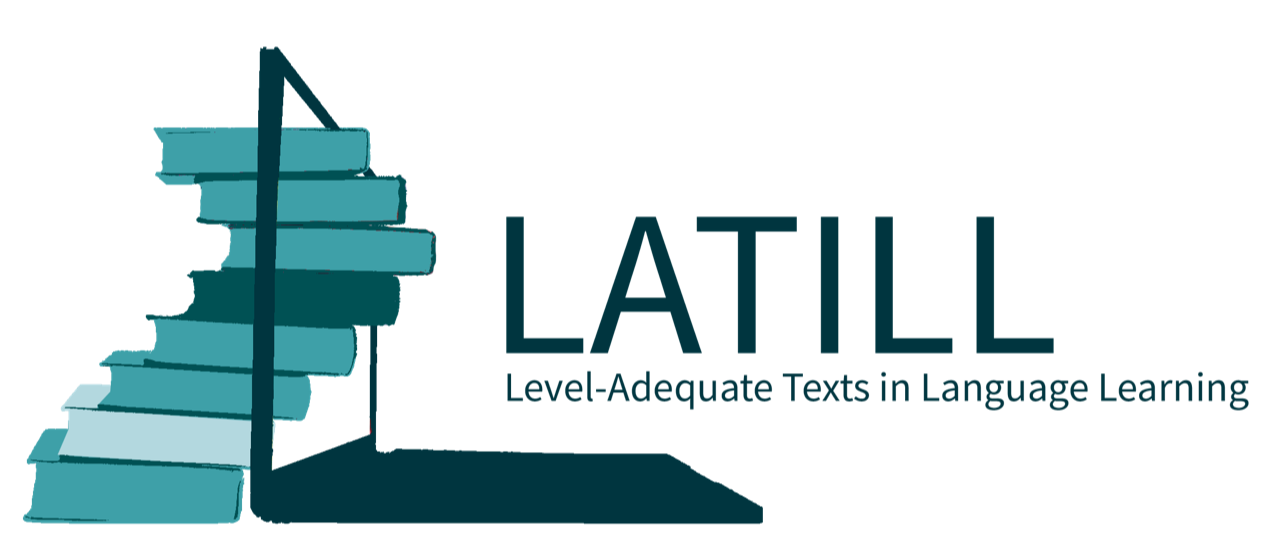Level-Adequate Texts in Language Learning (LATILL)

Reading competences in foreign languages is essential for young Europeans to gain access to information in other countries, to compare different perspectives on complex issues and to cooperate in solving problems in international contexts. The teaching of these crucial competences cannot rely on pre-packaged materials in textbooks and readers, but needs to use reading materials that (1) address current issues to build and maintain reading motivation and that (2) meet the language levels of students to develop their reading competences. In order to increase fluency in reading, it is of particular importance that the texts' linguistic features correspond to the individual learner's level of second language acquisition. Most learning environments require individualisation, and in the field of reading in a foreign language, this means that teachers need to be able to provide texts of different difficulty level to a group of students in order to effectively foster individual development. Therefore, the LATILL project supports foreign language teachers by developing digital tools that enable them to identify such level-adequate texts of interest for their various classes and individual learners.
More specifically, the LATILL team is to create a freely accessible platform for European – and worldwide – teachers of German as a foreign and second language that provides a search and analysis function for German texts on a specific topic and CEFR level and offers supporting tools and materials for working with authentic texts. Technical advances in the
field of computer linguistics allow to develop a digital tool that enables foreign language teachers to identify texts that are level-adequate in terms of morphology, syntax, lexicon, and genre. The use of such level-adequate texts in combination with a self-regulatory approach to foreign language reading and implicit lexico-grammatical learning allows for substantial quality improvement of foreign language programs.
The LATILL project addresses this need for the field of German as a foreign and second language by providing open educational resources including a search engine to identify level-adequate texts on a particular topic in the internet. To initiate change at the classroom level and to overcome theory-practice problems of top-down approaches to the professional development of teachers, the LATILL platform will be developed in a joint effort of foreign language researchers and teachers; this collaboration involves professional development modules for foreign language teachers that are grounded in experience-based and reflexive principles. An accompanying evaluation study will look into the teachers' use of and perspectives on the developed tools and materials in Spanish and Ukrainian classrooms at the secondary level and will allow for conclusions on desirable improvements of the tools, materials and accompanying measures. These professional development modules will be freely accessible for use in GFL teacher educational and professional development.
